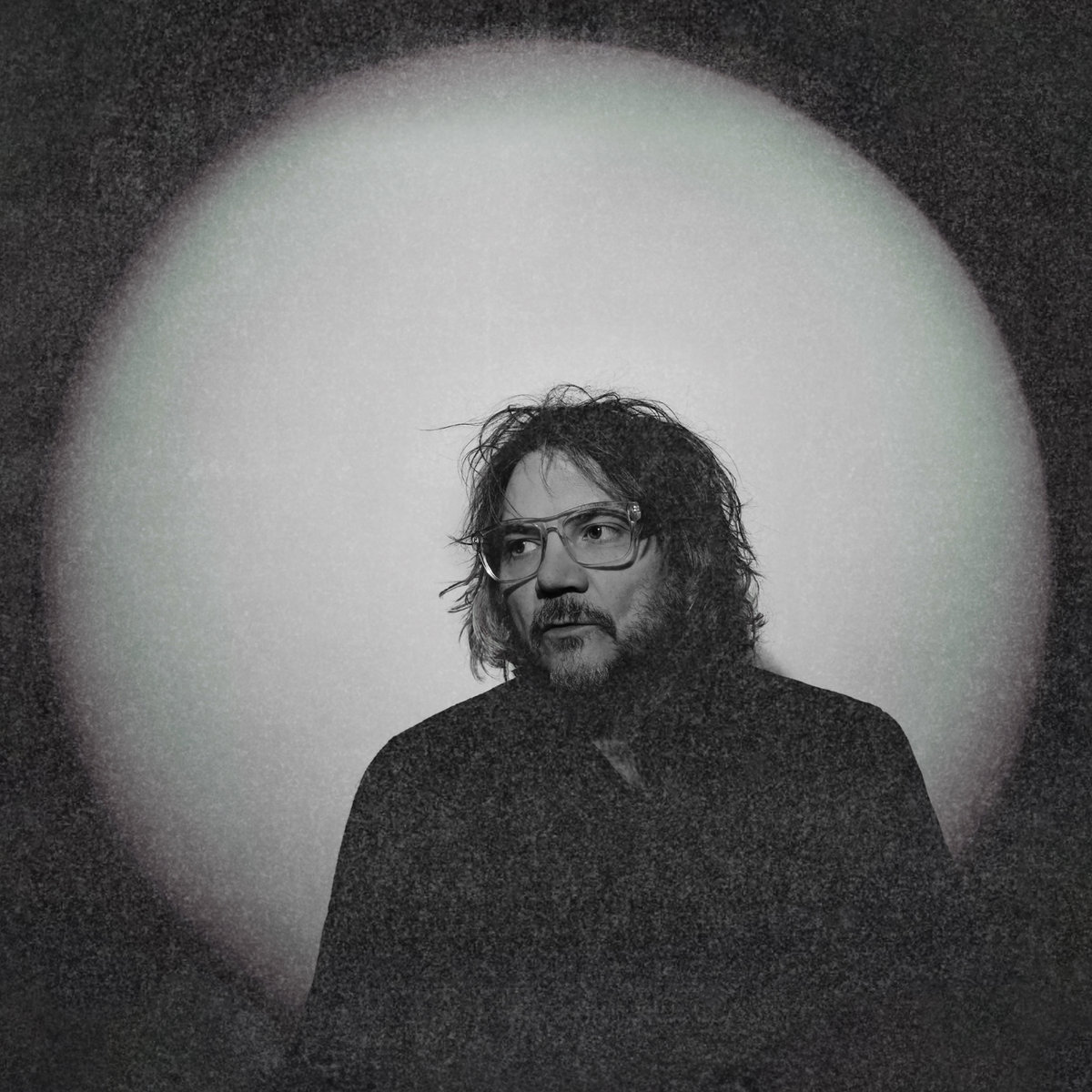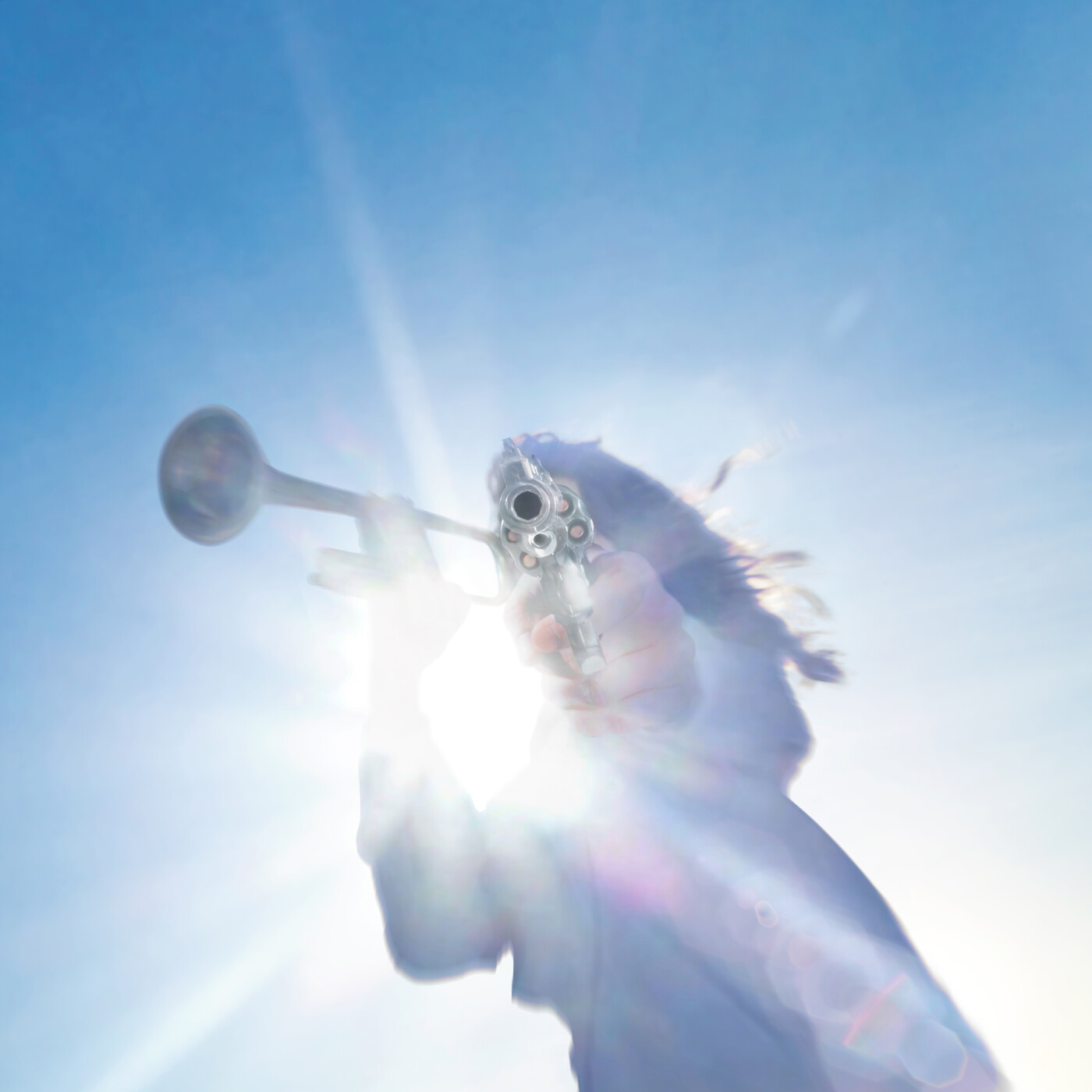The Punisher is the hard-boiled Marvel Comics vigilante whose insignia has lately become an icon for gun-clutching, authority-crazed wraparound-sunglasses cop types. A punisher is something different. Punisher is a term musicians sometimes dickishly use to describe the people who come up to them at shows and talk way too long, trying to soak up whatever attention they can get. The term has been around for years, mostly in punk and hardcore circles, and it's only lately trickled out to the point where non-musicians know what it means. (By now, musicians have probably come up with another word to describe the rest of us.) Phoebe Bridgers presumably has plenty of punishers. But on "Punisher," the title track from her second solo album, she's the punisher -- or, in any case, a punisher.
Bridgers' song "Punisher" is a sort of open letter to Elliott Smith, who died when Bridgers herself was nine years old. "I wrote a song about how, if Elliott Smith were alive, I probably wouldn’t have been the most fun person for him to talk to," Bridgers told The New Yorker. Bridgers now lives in Silver Lake, one Los Angeles neighborhood away from where Smith made his final home, and she sings about seeing Smith everywhere, imagining conversations with him. She tells him that she feels like she knows him. She calls herself "a copycat killer with a chemical cut." She sings to him as if he's both an idea and a human being: "Here, everyone knows you’re the way to my heart/ I hear so many stories of you at the bar." It's crushing.
"Punisher," like a lot of the songs on Punisher, is about being a pretender. Bridgers holds a dead man up as an ideal, unable to measure up in her own memory. Something similar happens on "Kyoto," where she's on tour in Japan and longing for home: "I wanted to see the world/ Then I flew over the ocean, and I changed my mind." Elsewhere, she calls herself "a bad liar with a savior complex." Doubt lingers all over the LP. And yet the whole album is sure and strong and confident to a staggering degree.
Punisher is officially Bridgers' second album, but that's a bit misleading. By the time Bridgers made her 2017 debut Stranger In The Alps, she'd already honed a sharp, hard, concrete songwriting style. Stranger In The Alps snuck up on me and on a whole lot of other people, but it remains a marvel of writerly precision and melodic float. Bridgers already had gravitas when she was just 22. In the years since, she's started bands with Conor Oberst and with Julien Baker and Lucy Dacus, and she's released a ton of music. The release of Punisher comes with plenty of hype -- and, judging by the lyrics, it also comes with plenty of worry that it won't live up to that hype. Bridgers shouldn't have worried. She crushed it.
One of the great things about Bridgers is that she's consistently able to shine in circumstances that would probably overwhelm most other songwriters. Consider the massive album-closing six-minute rager "I Know The End." (Talking to Esquire, Bridgers calls it "a big metal song." It's not metal -- at all -- but it sure is big.) A whole lot of people worked on "I Know The End." Conor Oberst sings backup on it. So do Julien Baker and Lucy Dacus. So does Sarah Beth Tomberlin, who really ought to just become the fourth member of boygenius at this point. The Yeah Yeah Yeahs' Nick Zinner plays guitar. Warpaint's Jenny Lee Lindberg plays bass. There are strings and horns and Mellotrons, and it builds to a beautifully raging singalong chorus that would've killed in the arenas that Bridgers was supposed to tour this summer as the 1975's opening act.
But even with all that going on, "I Know The End" works because of the focus that Bridgers brings to it, the evocative eye for detail that animates even the tiniest lyrical aside. Bridgers sings about a relationship that keeps breaking apart and coming back together, about the longing and angst that come with both sides of that. She talks about someone showing up like a dog "with a bird in your teeth," an image that comes up a few times on the record. She sings about driving out into the American desert, "looking for a creation myth": "A slaughterhouse, an outlet mall/ Slot machines, fear of God." It's a sad song, but it's bracing and exciting, too. The song builds to a surging group chant -- "The end is near!" -- but the power is in the journey, not the destination.
Bridgers is so good at all those little lyrical details, in fact, that it can be hard to catch the overall message of the songs. The individual isolated lines are just so good that they're distracting. Phoebe Bridgers has bars: "The doctor put her hands over my liver/ She told me my resentment’s getting smaller." "From the window, it’s not a bad show/ If your favorite thing is Dianetics or stucco." "We hate 'Tears In Heaven'/ But it’s sad that his baby died." "Took a tour to see the stars, but they weren’t out tonight/ So I wished hard on a Chinese satellite." Lines like that sparkle so hard that it might take a few listens to pick up on the sadness or affection or sweeping dread of the actual songs.
In that Esquire interview, Bridgers describes the basic subject matter of the album like this: "I feel like I don’t really know what records are about until years later. But as far as I can tell right now, it’s about having a personal life with a background of doom behind it." Bridgers is so mordantly funny on Twitter and so mordantly tender in song that she's often held up as a sort of generational figurehead. (The word "millennial" appears in basically every article about Bridgers, though, being born in 1994, she's awfully close to the zoomer cutoff.) As a songwriter, though, Bridgers exists almost out of time. She belongs to a certain tradition, one that spans the entire history of sincere, erudite pop music.
Bridgers sings in a soft, controlled, poetically conversational voice. Her music vacillates between sparse, welcoming acoustic-guitar quasi-folk and gentle, unrushed power pop, and it sometimes takes on just a few tasteful hints of mid-'00s indie rock bombast. Though Bridgers has expanded on the sound of her debut album, she's still working with Stranger In The Alps producers Tony Berg and Ethan Gruska. Even when she brings in a ringer like the Fiona Apple bassist Sebastian Steinberg or the legendary session drummer Jim Keltner, she sounds like she's just making music with her friends in the studio. It's just that the studio is lavishly appointed, and her friends are extremely good at making music.
Toward the end of his life, Elliott Smith was making music like this. He was getting together with the best musicians from the Largo universe, recording lush and expansive studio music that still spoke to his own personal fears and needs and unquenchable blues. With Punisher, Phoebe Bridgers has assembled her own dazzling supporting cast. She's shown the same guts and chops and precision as Smith did. Bridgers might not feel like Elliott Smith would want to talk to her. But she belongs in the conversation.
Punisher is out now on Dead Oceans. Stream it below.
https://twitter.com/phoebe_bridgers/status/1273602466802630658






